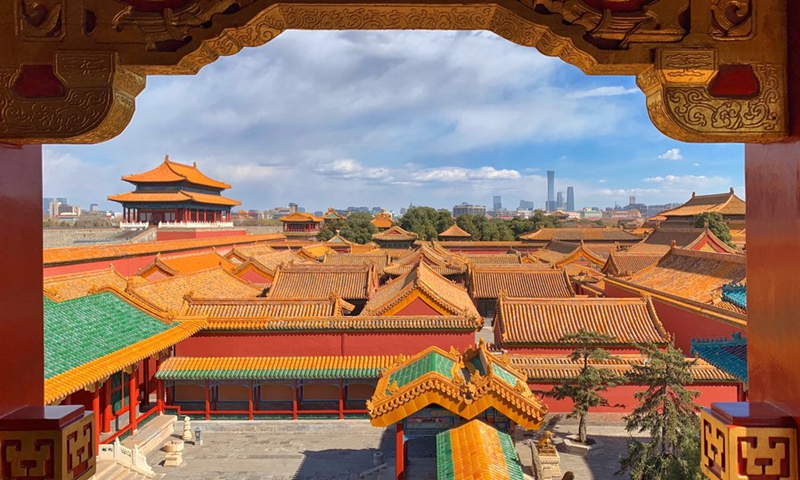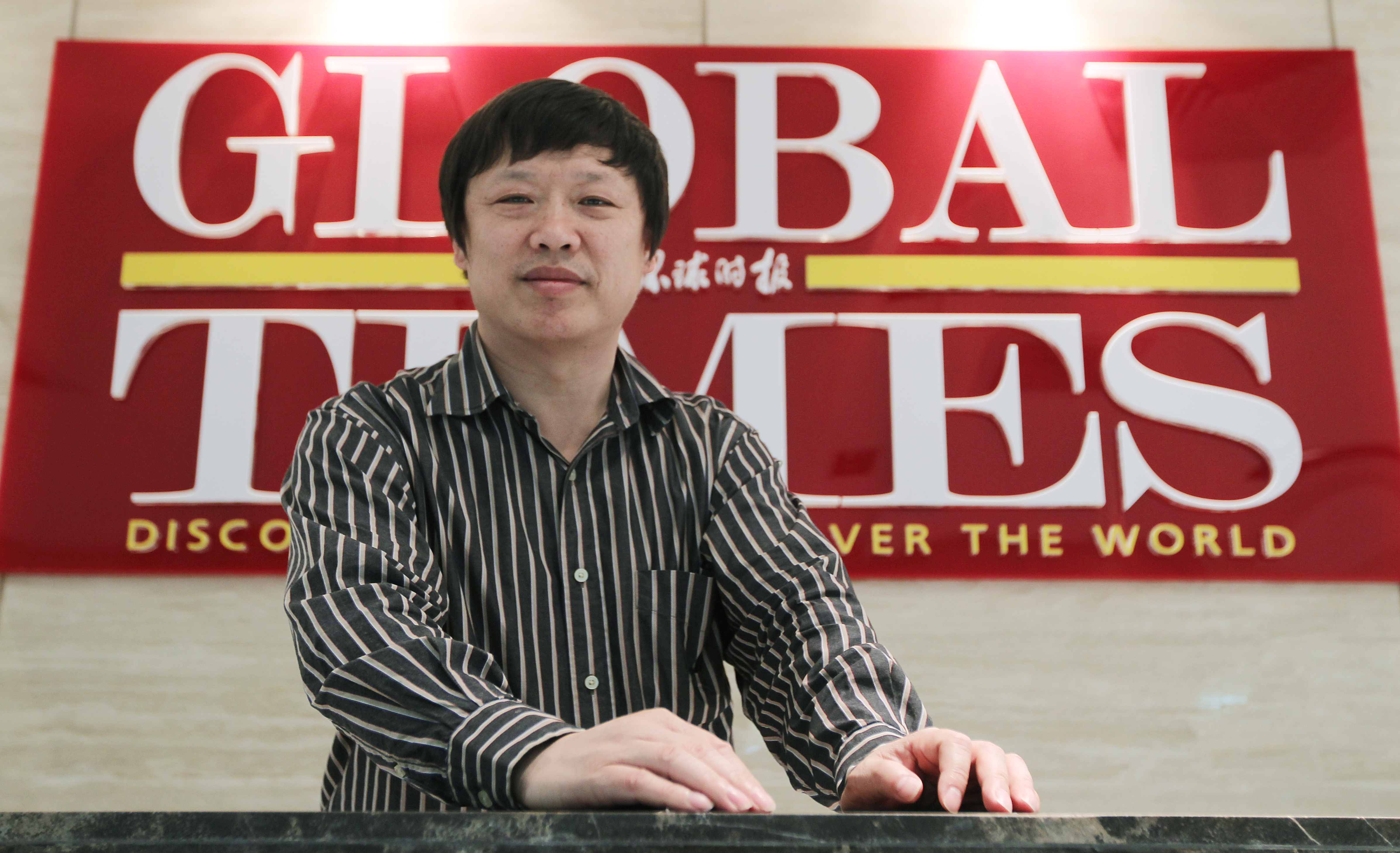Xi urges efforts to advance study of Chinese civilization, strengthen cultural confidence
By Global TimesPublished: May 28, 2022 01:56 PM

Chinese President Xi Jinping stressed the importance of deepening the study of Chinese civilization to enhance historical awareness and cultural confidence of the Party and society, while unswervingly following the path of socialism with Chinese characteristics to realize national rejuvenation.
Xi, also general secretary of the Communist Party of China (CPC) Central Committee, made the remarks during a Friday group study session of the Political Bureau of the CPC Central Committee on a national research program dedicated to tracing the origins of the Chinese civilization.
The program to explore the origins of the Chinese civilization has made remarkable achievements, but there is still a long way ahead as the successes are still preliminary and phased, Xi said.
It should be moved forward as there are still many historical mysteries to be unraveled and many issues waiting for settlement with consensus built based on solid evidence and study, he said.
Xi called for greater efforts in studying unearthed artifacts and cultural relics and promoting related knowledge to enhance the power of the Chinese civilization to influence and inspire.
He pointed out that exploring its origins helps to show the development of the sense of community in the Chinese nation.
Zhang Yiwu, a Peking University professor with an expertise on culture studies, told the Global Times on Saturday the origins tracing targeted to explore historical literature in combining with archaeological findings to trace back the start of the Chinese civilization, as well as sort out the development from ancient times to today.
Zhang cited the Sanxingdui Ruins in Southwest China's Sichuan and Erlitou Relic in Central China's Henan as two examples under the program, which have made key progress in recent years.
The Erlitou findings helped answer the question whether China's first recorded dynasty, the Xia (around 2070 BC-1600 BC), was real. Xia was recorded in ancient historical literature but a lack of hard archeological evidence prompted divided opinions among scholars around the world.
Sanxingdui, dated back at least 4,800 years and known for huge bronze crafts, is believed to be the remnants of the Shu Kingdom, which survived for more than 2,000 years.
Those sites, findings and relevant documents are "blocks" of Chinese civilization, through which "Chinese people can share a sense of belonging and build up national recognition," Zhang said.
During the Friday group study, Xi also stressed cultural relics preservation as well as protection and revitalization of cultural heritage.
Xi stressed the origins tracing should be done along with studies and interpretation of Chinese culture and spirit, including kindness, people-centered, integrity, justice and pursuit of harmony.
Zhang named three key features among the rich Chinese culture, that is "Tianren Heyi", or humans being an integral part of nature, diversity in harmony and self-improvement of a true gentleman.
The Confucian "Tianren Heyi" is of contemporary importance considering the losses of biodiversity and climate change are posing a real threat to the existence of mankind.
Departing from "diversity in harmony," Chinese civilization becomes open and inclusive and prospers with a united multi-ethnic state. Such philosophy is even more relevant when confrontations in values are acute and conflicts frequent in a global scale, Zhang said.
Xi on Friday stressed upholding the values of equality, mutual learning, dialogue and inclusiveness among civilizations, saying that people should understand the values of different civilizations with an open mind and respect people of different countries in exploring their own development paths.
Misunderstandings between civilizations can be overcome through enhanced exchanges, clashes avoided by strengthening mutual learning, and civilization superiority replaced by the co-existence of various civilizations, Xi said.
Zhang said the self-improvement belief is the inexhaustible source from which generations of Chinese people gain strength. Holding such belief, one will not collapse in headwinds and will not grow arrogant in favorable conditions as there is always room for improvement.
Inheriting the core philosophy from history, Chinese culture is reforming and renewing itself and enriched by devoted border martyrs, by unnamed poverty-reduction village officials, by generations of space engineers and by every Chinese who fulfills their ordinary duties, Zhang said.
By exploring, studying and deepening understanding of Chinese civilization, the Chinese nation is united in solidarity, overcomes challenges as it did in history, reforms itself to adapt to the time while upholding the inclusiveness to embrace a world of differences, Zhang said.
Chinese culture, therefore, constitutes the backbone of the nation's spirit and contributes to world cultures that are diverse and dynamic, the expert claimed.
By Global TimesPublished: May 28, 2022 01:56 PM

Chinese President Xi Jinping stressed the importance of deepening the study of Chinese civilization to enhance historical awareness and cultural confidence of the Party and society, while unswervingly following the path of socialism with Chinese characteristics to realize national rejuvenation.
Xi, also general secretary of the Communist Party of China (CPC) Central Committee, made the remarks during a Friday group study session of the Political Bureau of the CPC Central Committee on a national research program dedicated to tracing the origins of the Chinese civilization.
The program to explore the origins of the Chinese civilization has made remarkable achievements, but there is still a long way ahead as the successes are still preliminary and phased, Xi said.
It should be moved forward as there are still many historical mysteries to be unraveled and many issues waiting for settlement with consensus built based on solid evidence and study, he said.
Xi called for greater efforts in studying unearthed artifacts and cultural relics and promoting related knowledge to enhance the power of the Chinese civilization to influence and inspire.
He pointed out that exploring its origins helps to show the development of the sense of community in the Chinese nation.
Zhang Yiwu, a Peking University professor with an expertise on culture studies, told the Global Times on Saturday the origins tracing targeted to explore historical literature in combining with archaeological findings to trace back the start of the Chinese civilization, as well as sort out the development from ancient times to today.
Zhang cited the Sanxingdui Ruins in Southwest China's Sichuan and Erlitou Relic in Central China's Henan as two examples under the program, which have made key progress in recent years.
The Erlitou findings helped answer the question whether China's first recorded dynasty, the Xia (around 2070 BC-1600 BC), was real. Xia was recorded in ancient historical literature but a lack of hard archeological evidence prompted divided opinions among scholars around the world.
Sanxingdui, dated back at least 4,800 years and known for huge bronze crafts, is believed to be the remnants of the Shu Kingdom, which survived for more than 2,000 years.
Those sites, findings and relevant documents are "blocks" of Chinese civilization, through which "Chinese people can share a sense of belonging and build up national recognition," Zhang said.
During the Friday group study, Xi also stressed cultural relics preservation as well as protection and revitalization of cultural heritage.
Xi stressed the origins tracing should be done along with studies and interpretation of Chinese culture and spirit, including kindness, people-centered, integrity, justice and pursuit of harmony.
Zhang named three key features among the rich Chinese culture, that is "Tianren Heyi", or humans being an integral part of nature, diversity in harmony and self-improvement of a true gentleman.
The Confucian "Tianren Heyi" is of contemporary importance considering the losses of biodiversity and climate change are posing a real threat to the existence of mankind.
Departing from "diversity in harmony," Chinese civilization becomes open and inclusive and prospers with a united multi-ethnic state. Such philosophy is even more relevant when confrontations in values are acute and conflicts frequent in a global scale, Zhang said.
Xi on Friday stressed upholding the values of equality, mutual learning, dialogue and inclusiveness among civilizations, saying that people should understand the values of different civilizations with an open mind and respect people of different countries in exploring their own development paths.
Misunderstandings between civilizations can be overcome through enhanced exchanges, clashes avoided by strengthening mutual learning, and civilization superiority replaced by the co-existence of various civilizations, Xi said.
Zhang said the self-improvement belief is the inexhaustible source from which generations of Chinese people gain strength. Holding such belief, one will not collapse in headwinds and will not grow arrogant in favorable conditions as there is always room for improvement.
Inheriting the core philosophy from history, Chinese culture is reforming and renewing itself and enriched by devoted border martyrs, by unnamed poverty-reduction village officials, by generations of space engineers and by every Chinese who fulfills their ordinary duties, Zhang said.
By exploring, studying and deepening understanding of Chinese civilization, the Chinese nation is united in solidarity, overcomes challenges as it did in history, reforms itself to adapt to the time while upholding the inclusiveness to embrace a world of differences, Zhang said.
Chinese culture, therefore, constitutes the backbone of the nation's spirit and contributes to world cultures that are diverse and dynamic, the expert claimed.



